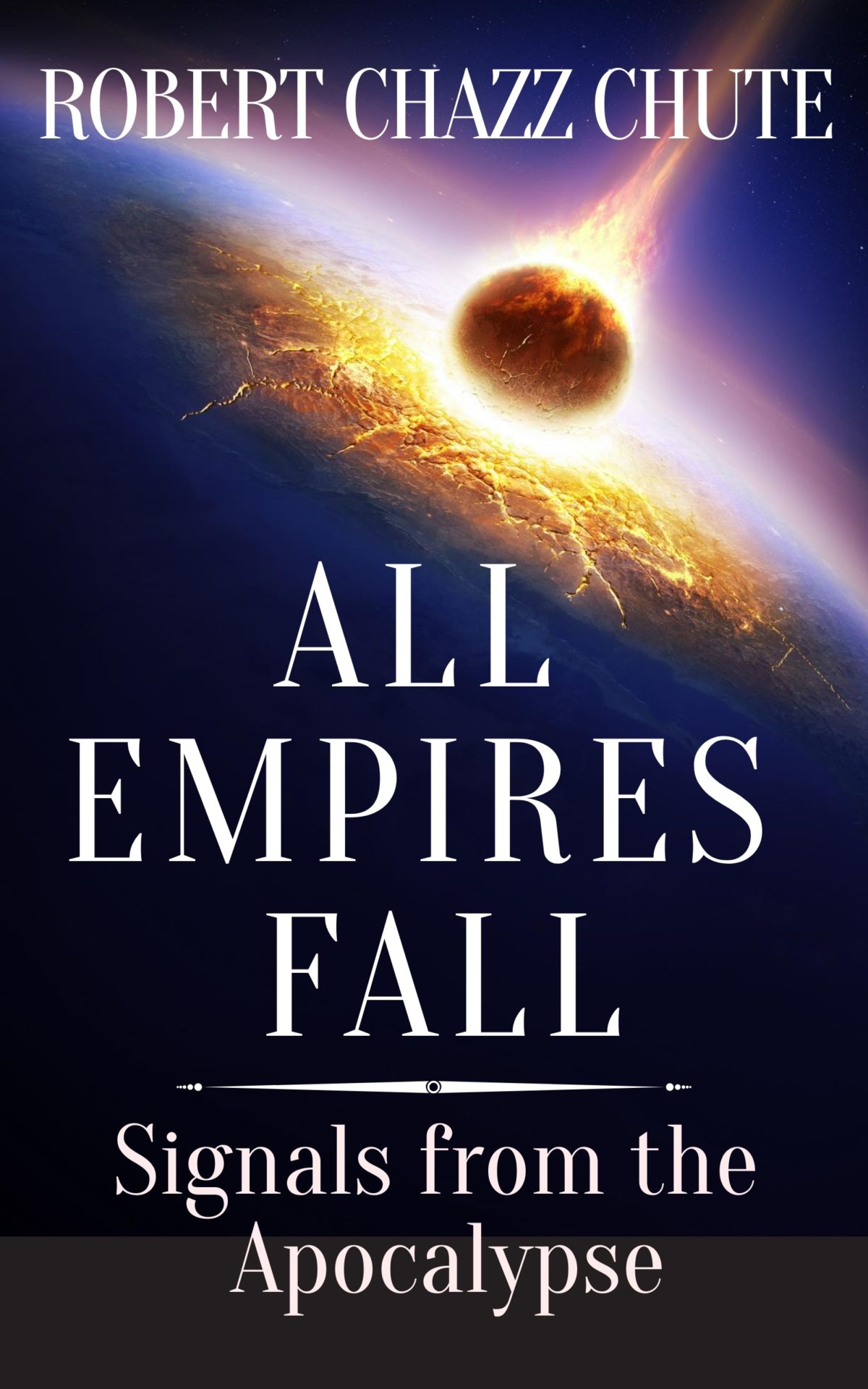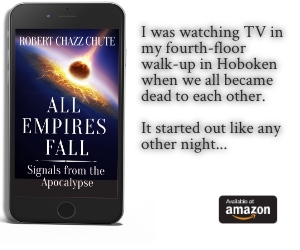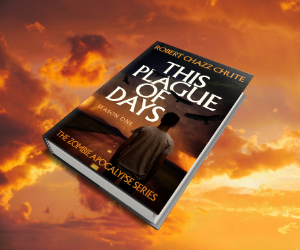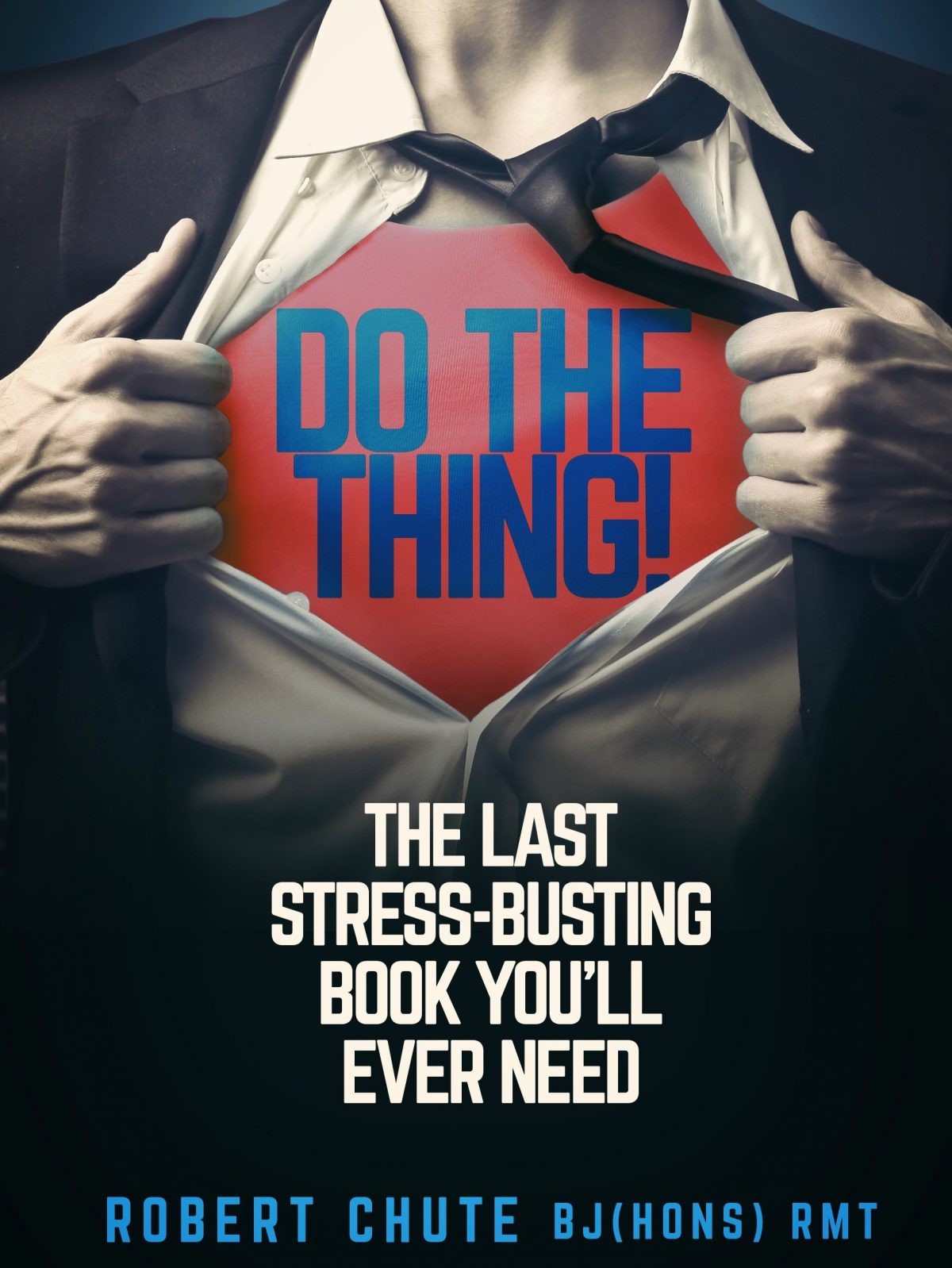It’s interesting to watch things fall apart. This feels like our plane is falling from the sky while the pilot tells you, “This is for your own good, you know. Thank me.”
The news is hard to keep up with. While DOGE divulges national security secrets, the FDA suffers massive layoffs. If food safety was important to you, too bad. Not enough food inspectors. Everything that goes awry is blamed on Diversity, Equity, and Inclusion.
Pro Tip: Next time someone says they are against DEI, ask them which particular aspect they are against. Are they against diversity, equality, or inclusion? If they just say DEI, there’s a good chance they can’t define the term, and the slogan might just be shorthand for a slur.
As a Canadian and an author, naturally I’m concerned about the trade war. The blanket tariffs on Canada have been put off until Donald has another whim, an empty complaint or a non-specific demand. He has managed to do something no Canadian politician has accomplished: We are united against him. When you get Quebecois and English Canada working together against you, you know you’ve fucked up.
To their credit, many Americans are also feeling vulnerable and oogy. A handful of young dogebags with very questionable credentials are mining their personal data. These cadets for prison say they’re conducting audits, but there’s not an accountant in sight. If you only bring hackers to the job, the job is hacking.
On Boycotts
February 28, everyone is encouraged to buy local, and not give money to oligarchs. Will this make a difference? Probably not if it’s just one day. What’s more impressive and effective are the ongoing changes in buying habits. Canadians don’t have a lot of alternatives for streaming services, so most of us won’t give up Amazon Prime and Disney. On the other hand, Canadians are staying away from cross-border shopping.
Whenever I’ve nipped across the border, the cars in mall parking lots in Port Huron are filled with Ontario license plates. Not anymore, and those businesses are feeling the pinch. Likewise, Canadian tourism to the United States has plummeted so much that Air Canada has cancelled a lot of flights. Given the blanket firings at the FAA, many of us are leery of flying, anyway. Donald assured us flying was safe, except we’re all in danger from unqualified air traffic controllers and pilots…but we’re safe. What?
This White House is notorious for its muddled messaging. For instance, tariffs are great for America! How will we punish Canada and Mexico? Tariffs! What? Those little countries will put retaliatory tariffs on us? Terrible! How dare they?
Writing in a Dangerous Time
I love my readers, and most of them, by far, are from the States. I’ve entertained many citizens of the Divided States of America, and I bear them no ill will. It’s their government that’s the problem. Canada will not become the 51st state. If that were to transpire somehow, this grasping president would soon find out he doesn’t want what he thought he did.
So, how will all this affect my book sales? My sales will go down. That will occur, but not because of any mass animus on either side of the border. It will happen because our two countries are headed for a recession. When people can’t afford to buy eggs, have lost their job, or can’t pay the rent, they won’t be buying my delightful fiction. In times of trouble, fiction is an excellent distraction that soothes the soul. In times of disaster, you can’t read when you’re too busy running.
Should you boycott Amazon? Up to you. Consider two factors: (A) That’s my entire source of income, and (B) Jeff Bezos won’t care. Bezos has much bigger fish to fry and planets to invade. But seriously, it’s up to you. If you are boycotting Amazon and the other oligarchs, I really can’t complain. I’m buying Canadian products and support local retailers as much as I can manage. The universal tariffs aren’t on us right now, but the international trust is gone, and our friendship is damaged. Threatened with domination, Canadians don’t look upon America as kindly anymore. We were happy to be friends, but Donald insistence on gratitude has only angered us and strengthened our resolve to affirm our national identity.
To the Americans who don’t get it, I’ll simplify: Patriotism isn’t just for you. If China talked carelessly about annexing Texas, you’d lose your shit. See?
What about that trust we lost?
Canadians have long been the US’s biggest ally and solid trading partner. Now, my government is pushed toward expanding trade with other nations. China, Europe, and Brazil spring to mind first. A new trade agreement has been founded with Ecuador. While some Americans toy with the idea of attacking NATO allies, there’s talk of Canada joining the EU. Donald talks about how the American military protects us, but all we feel is a need for protection from the US military.
I’m tired of the media talking about a “budding” constitutional crisis in the US. It’s not coming. It’s here, and by the way, we’re all in more danger than we were a month ago. The Five Eyes shared sensitive information and surveillance resources to tamp down terrorist groups. Given that Donald has a habit of keeping top-secret documents in unsecured locations, it’s now the Four Eyes. They won’t share important information if they think it could be compromised so easily. Terrorist attacks will succeed in the next four years due to this sad lack of international cooperation and coordination. (There’s another reason to stay off planes.)
Information mismanagement is a huge problem (and possibly the plan) with this new administration. Abandoning the World Health Organization means less data pooling among researchers. No USAID? Diseases that were squelched fast in far lands will appear here.* Measles is on the rise. Bird flu is in the offing. Dismantling CDC pandemic response teams and installing RFK as chief quack means disease and disaster are dead ahead. And I do mean dead.
*For a shocking look at Trump’s death toll that’s already killing babies, watch the first episode of 2025 of Last Week Tonight with John Oliver. (No, I haven’t given up my HBO subscription through Crave yet, and John Oliver is the reason. His best joke about his own appearance: “I look like a parrot who works at a bank!” Damn, I love John Oliver.)
Look, I’ve written a lot of apocalyptic novels. The burden in fiction is achieving verisimilitude. It has to sound authentic. In this non-fiction scenario, we’re running headlong toward lethal folly. In a novel. I would never write what’s happened in the first month of the Trump presidency. It would sound too silly. Even the most hardcore of Donald Trump’s supporters must have at least struggled a little with his thoughtless layoffs of experts who ensure nuclear weapons don’t blow up in their silos. The regulators and safety inspectors work in the Department of Energy. I guess Trump and Elon didn’t understand that designation is really a misnomer. It’s less the Department of Energy and more the Department of Nuclear Weapons.
I’ll keep writing books because I have no other skills of note. I hope we all come out the other side of this healthy, horny, and perhaps wiser. I try to let go of what I can’t control. I’ll do what I can to resist. For instance, I’ll boo the US national anthem. Does that have any effect? Actually, yes, because it goes against the Canadian stereotype and shocks the senses of those who are, for one reason or another, trying to normalize the abnormal. Too many US citizens, brainwashed by decades of the American Exceptionalism virus, don’t see us as a separate nation. They don’t think of us at all, really. We either simply don’t matter to them, or we’re the butt of lame jokes. Sounds like Canada needs new close allies, doesn’t it? Donald’s the consummate bad boyfriend.
Some Canadians don’t agree we should boo the US national anthem. I considered their objection of “That’s not who we are.” Then I saw the comment: “The country that aims to annex us says booing their national anthem is impolite.” Yeah, I’m gonna have to go with booing.
I am a writer who wants to entertain my readers, but I was Canadian first, and I love that. We share many similarities with our neighbours to the south, but we are different. For instance, Canadian healthcare saved the vision in my left eye and gave me two hip implants that allow me to walk without pain. All I had to pay was parking. School shooting are a rarity here. Meanwhile, in the States, I have often confused this week’s mass murders with last week’s mass murders. No, I don’t ache to own an arsenal and call that freedom. No, I don’t want to be a vassal to a King who wouldn’t bother to piss on me if I were on fire.
What am I going to do for the next four years?
I‘ll keep writing books for anyone who will have me. When confronting chaos, I’ll try not to panic and use my voice to serve righteous causes. That’s probably about all the force I can muster. Given the larger forces at play, maybe I should learn the language of the newest sole superpower. Mandarin will be difficult, but well….
The better question is, why do so many Americans defy their history and great future potential to serve a king who thinks “groceries” is a new word?*
*Yeah, he said that.
The Empathy Deficit
Donald suffers from ED, Empathy Deficit. Donald does terrible things and calls it virtue. If he had empathy for others, he wouldn’t do the things he does. Apparently, that infection hit some 30 – 40% of American citizens. Some of his voters are now discovering their mistake, but too late. The next election is far off. Next time, do your research before the election. If you’re MAGA, just know it’s not all your fault. You’ve been tricked, probably because the amygdala in your brain is too big. (That’s the fear center of your brain, so no, that’s not good. Your fears are overcoming your neo-cortex, where the thinking happens.)
Last night, I listened to a political debate. The host pointed out that the MAGA guest’s taxes would soon rise by three percent. He also mentioned that defunding USAID would kill 20 million people. The MAGA guest panicked about the 3% tax hike. He didn’t react at all to the deaths of 20 million people. That careless disregard for humanity is the rot at the root.
Note: This sort of post won’t be a regular thing. I’ll touch base with current events from time to time, but I’ll also give you stress relief here. I prefer fiction to real life, especially now.
Like this:
Like Loading...





